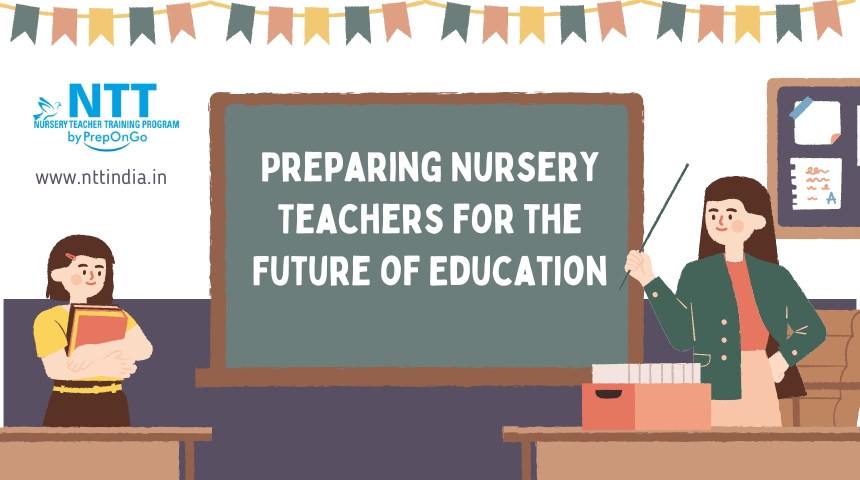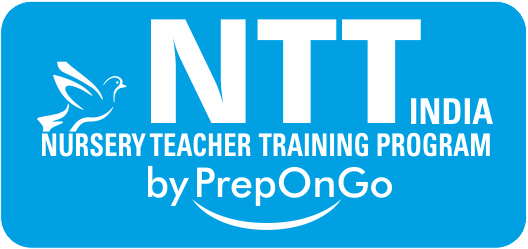Preparing Nursery Teachers for the Future of Education

Understanding Digital Literacy for Preschoolers
Digital literacy for preschoolers involves more than just knowing how to use a tablet or navigate a website. It encompasses a broader understanding of how to interact with digital content safely, responsibly, and creatively. At this stage, digital literacy includes:
- Basic Navigation Skills: Understanding how to use devices like tablets, computers, or smartboards.
- Safe Use of Technology: Learning about online safety, such as not sharing personal information.
- Creative Expression: Using digital tools to draw, create stories, or explore music and games.
- Critical Thinking: Beginning to distinguish between real and imaginary content, understanding that not everything seen online is true.
Nursery teachers play a pivotal role in introducing these concepts in a way that supports early learning and development.
Why Digital Literacy Matters in Early Childhood
Digital literacy is becoming as fundamental as traditional literacy skills like reading and writing. Here’s why it matters:
- Preparation for the Future: As technology becomes more embedded in education and daily life, children who are introduced to digital tools early will be better prepared for the future. Early exposure helps them become comfortable with technology, making future learning easier.
- Enhancing Learning: Digital tools can enhance traditional learning methods. Educational apps and interactive games can make learning fun and engaging, helping children grasp concepts more quickly.
- Building Critical Thinking: By introducing digital literacy early, teachers can help preschoolers develop critical thinking skills. They learn to question what they see online and understand that digital content needs to be evaluated critically, laying the groundwork for media literacy.
- Encouraging Creativity: Digital tools can be used to foster creativity. Whether it’s through digital drawing apps, storytelling software, or music creation programs, children can explore their creativity in new ways.
Preparing Nursery Teachers for Digital Education
To effectively teach digital literacy to preschoolers, nursery teachers need the right skills and resources. Here’s how they can be prepared:
- Professional Development and Training
- Ongoing Training: Teachers should receive regular training on the latest digital tools and educational apps that are suitable for preschoolers. This training should include both technical skills and pedagogical strategies for integrating digital literacy into the classroom.
- Workshops and Webinars: Participating in workshops and webinars on digital literacy can help teachers stay updated on emerging trends and best practices in early childhood digital education.
- Integrating Technology in Lesson Plans
- Blended Learning Approaches: Teachers can create lesson plans that blend traditional teaching methods with digital tools. For example, using interactive whiteboards to teach shapes or numbers can make lessons more engaging.
- Digital Storytelling: Incorporating digital storytelling into the curriculum can help children develop their narrative skills while becoming familiar with using technology creatively.
- Emphasizing Online Safety
- Teaching Digital Safety: It’s important to introduce basic online safety concepts, even to young children. Teachers should teach children about privacy, the importance of keeping personal information secure, and how to seek help if they encounter something uncomfortable online.
- Parental Involvement: Engaging parents in the process is key. Providing them with resources and tips on how to manage screen time and encourage safe digital practices at home ensures that children receive consistent messages about digital safety.
- Creating a Digital-Friendly Classroom Environment
- Accessible Technology: Ensure that digital tools are readily available in the classroom, and that all children have the opportunity to interact with them. This could include tablets, computers, or interactive whiteboards.
- Encouraging Exploration: Create an environment where children feel comfortable exploring digital tools under supervision. Encourage them to ask questions and try new things, fostering a sense of curiosity and confidence with technology.
- Fostering Digital Creativity
- Creative Projects: Assign projects that allow children to use digital tools creatively. For example, a class project could involve using a simple animation app to create a short story or using a music app to compose a simple tune.
- Digital Art and Music: Incorporate apps that allow children to draw, paint, and make music. These activities help them express themselves creatively while also developing fine motor skills and digital literacy.
Conclusion: Shaping the Future with Digital Literacy
As technology continues to evolve, so too must our approaches to early childhood education. Digital literacy is no longer optional; it’s a necessary skill that should be nurtured from a young age. By preparing nursery teachers to integrate digital literacy into their classrooms, we ensure that preschoolers are not only ready to navigate the digital world but are also equipped to thrive in it.
Teachers who are well-versed in digital education can create a learning environment that balances traditional methods with modern tools, fostering a generation of confident, creative, and responsible digital citizens. The future of education is digital, and it starts with our youngest learners.
